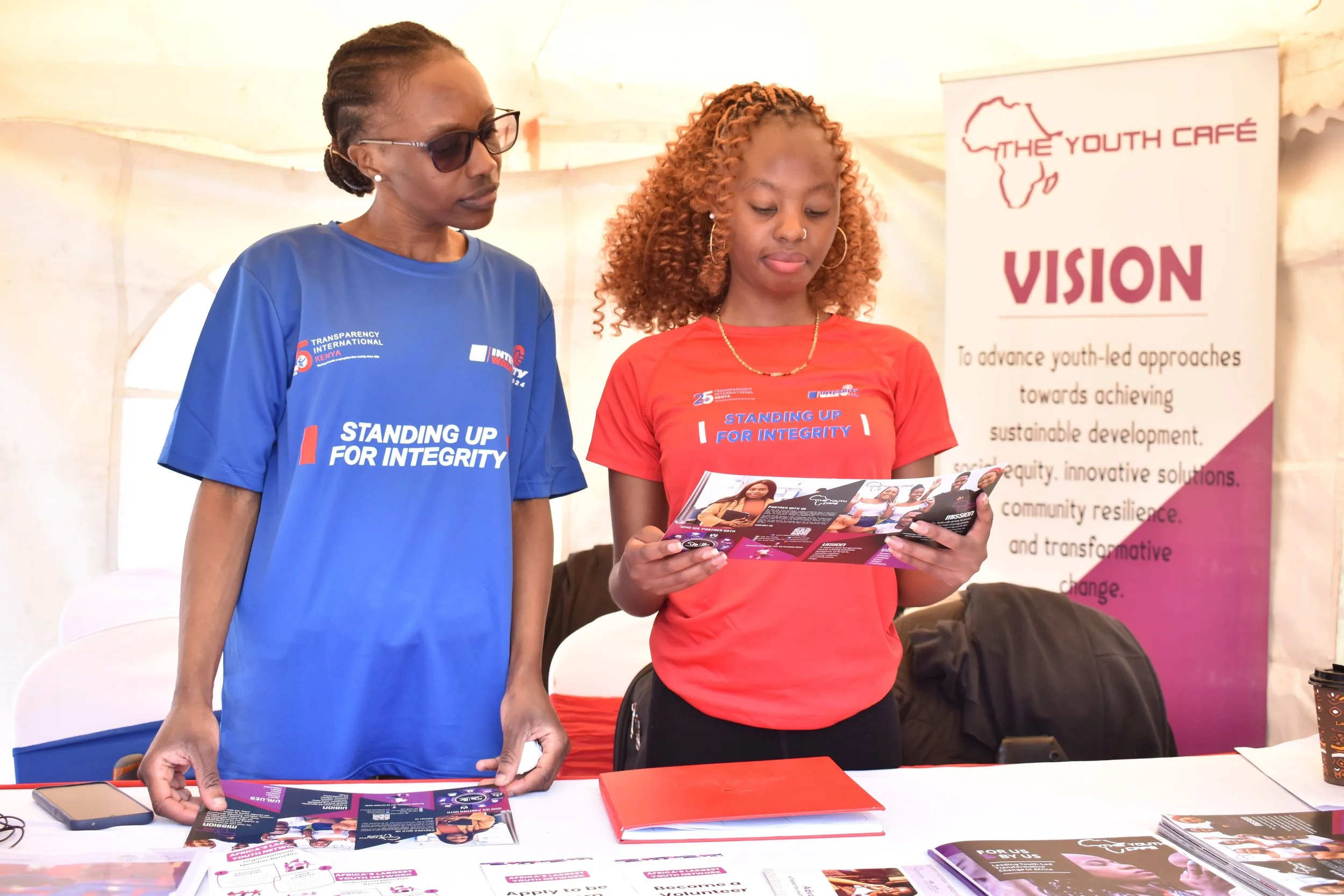This youth-informed policy brief, developed under the Cyber Rights Campus Connect initiative by The Youth Café in partnership with KICTANet and Internews, highlights critical gaps in Kenya’s digital governance. Emerging from a policy hackathon held on 16th May 2025 during the Africa Tech Policy Summit (AfTPS), the initiative aimed to empower human rights defenders and organizations to co-create policy innovations and align Kenya’s digital policies to address online safety, data protection, and content moderation challenges.
Addressing Africa State Of Debt And Their Intergenerational Impact On Youths.
Africa stands at a critical crossroads. After early debt relief in the 2000s, many African states are once again grappling with rising debt levels, worsened by the COVID-19 pandemic, global conflicts, inflation, and the escalating climate crisis. This resurgence of debt has far-reaching consequences—not only for governments but also for Africa’s youth, who make up more than 60% of the population.
Scaling Up Climate Finance In Africa: Empowering Youth For A Green Transition And Climate Resilience
Africa contributes less than 4% of global emissions yet faces some of the harshest climate impacts. Meeting its climate goals requires USD 277 billion annually, but only a fraction of this funding reaches the continent—and even less supports youth. In Kenya, the financing gap remains wide, with young people excluded from climate finance despite being the majority and key drivers of innovation.
Harnessing Youth Leadership For Climate - Resilient Economies In Africa
Climate Action For Resilient And Sustainable Futures In Kenya
Climate change poses one of the greatest threats to Kenya’s sustainable development. Its impacts—ranging from prolonged droughts, erratic rainfall, and rising temperatures—are already undermining health, food security, water availability, and livelihoods. Vulnerable groups such as women, youth, persons with disabilities (PWDs), and marginalized communities bear the heaviest burden.
Sustainable Development Goals (SDGS) Data In Kenya. Addressing Gaps, Tracking, Monitoring Of SDG Indicators
Kenya’s progress toward the Sustainable Development Goals (SDGs) relies heavily on reliable, timely, and inclusive data. Yet, despite notable achievements, significant gaps remain. Currently, Kenya tracks only 68% of global SDG indicators, with major shortfalls in health (SDG 3), gender equality (SDG 5), and climate action (SDG 13).
Mental Health For All: Advancing Kenya's Progress Toward SDG 3 And Beyond
Kenya is facing a mental health crisis. An estimated 5–10 million Kenyans—10–20 % of the population—live with mental health conditions such as depression, anxiety, substance-use disorders, bipolar disorder, and schizophrenia. Yet mental health services receive less than 0.01 % of the national health budget, far below the World Health Organization’s 5 % recommendation for low-income countries.
Support Of African Youth In Science, Technology, Innovation And Capacity Building
The Youth Café has released a new Policy Brief on Supporting African Youth in Science, Technology, Innovation and Capacity Building (STI&CB). It highlights how Africa’s young population—already the world’s largest and fastest-growing—can drive sustainable development if given the right tools, opportunities, and infrastructure.
Policy Brief | Young Peoples Awareness Of African Free Trade Area (AfCFTA) Agreement
This paper is a summation of the learnings gleaned from The African Youth Cafe’s just concluded first of its kind Continental Scoping Study on African Young Peoples’ Awareness of the AfCFTA and their perceived role as stakeholders in its implementation under the ongoing AfCFTA Youth Inclusion Accelerator Project (AfCFTA-YIAP) aimed toward Amplified Continental Youth Mobilization, Awareness and Engagement in AfCFTA Processes.
Policy Brief | Status Of Youth's Political, Economic And Social Rights In Kenya
Being a member of the United Nations and by implication a party to various human rights instruments, Kenya supports various treaties and instruments that support youth empowerment. The central most of these instruments is the Universal Declaration of Human Rights of 1945. Other instruments include the Convention on Elimination of All Forms of Discrimination Against Women (CEDAW), the International Covenant on Social Economic and Cultural Rights (ICSECR), the African Youth Charter (AYC) among others.
Meaningful Youth Engagement in Policy and Decision-making Processes
The present policy brief is one such input. It elaborates on the ideas first proposed in Our Common Agenda, taking into account subsequent guidance from Member States and over one year of intergovernmental and multi-stakeholder consultations, and rooted in the purposes and the principles of the Charter of the United Nations, the Universal Declaration of Human Rights and other international instruments.
Transforming Innovation Technology And Education For Achieving Gender Equality
This policy brief was made in light of the upcoming CSW67 (Commission on the Status of Women) to address the theme on Innovation, Technological Change, and Education in the digital age for achieving gender equality and empowerment for all women and girls. The rise of innovation and technology in Africa has played a significant role in the development agenda; digital technology plays an important role in achieving the Sustainable Development Goals.
Creating A Gender Equitable & Inclusive Response To GBV In Kenya.
African Youth And Climate Change -A policy Brief In Light Of COP-27
This policy brief was made in light of the upcoming COP27 to address significant themes concerning climate change and African youth engagement. We find that despite the urgency of including youth in climate discussions, there are several difficulties that African youth face in getting involved. Reasons why these focus areas are of concern for African youths, are elaborated, followed by recommendations concerning these issues. The latter portion of the policy brief summarises four challenges African youths face regarding participation in climate matters.






